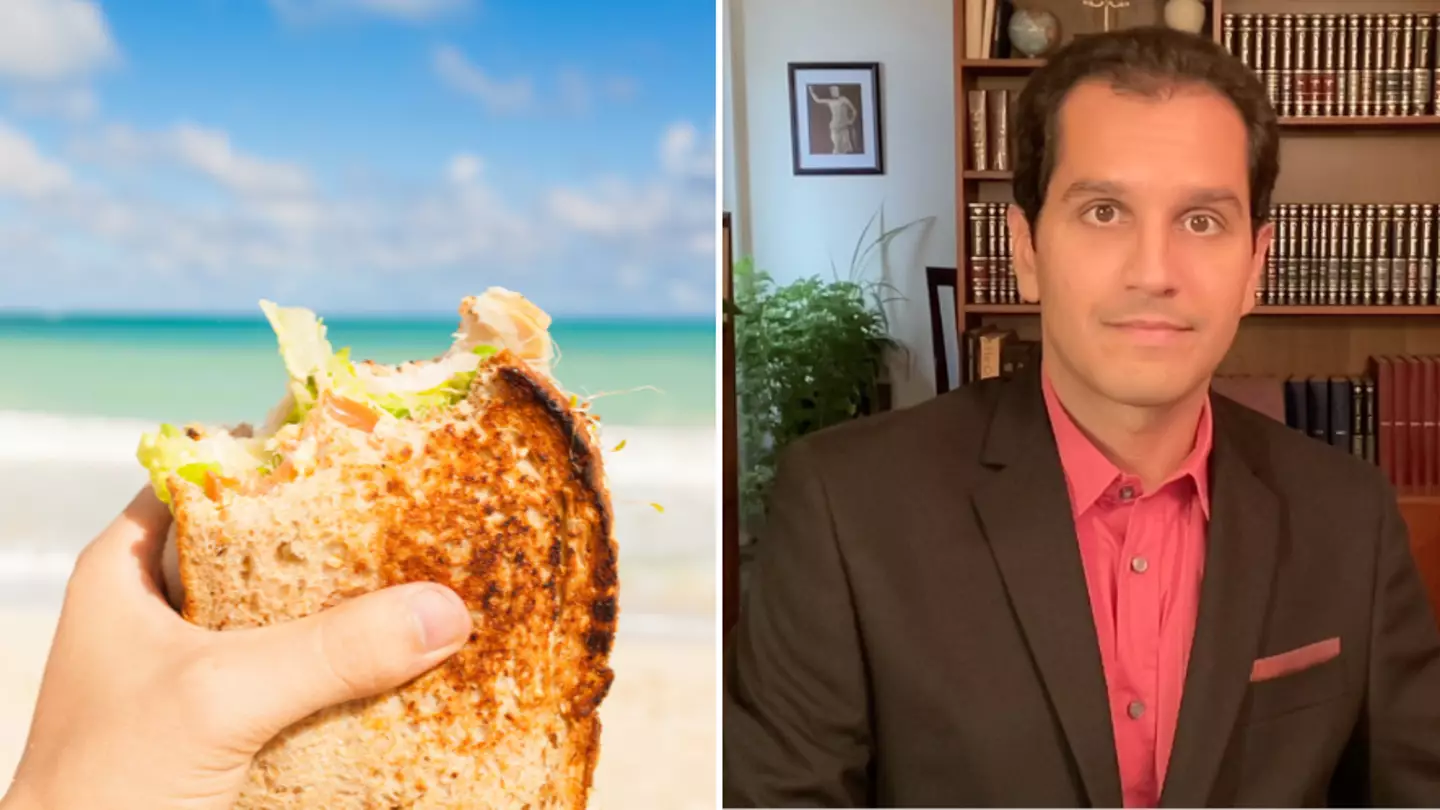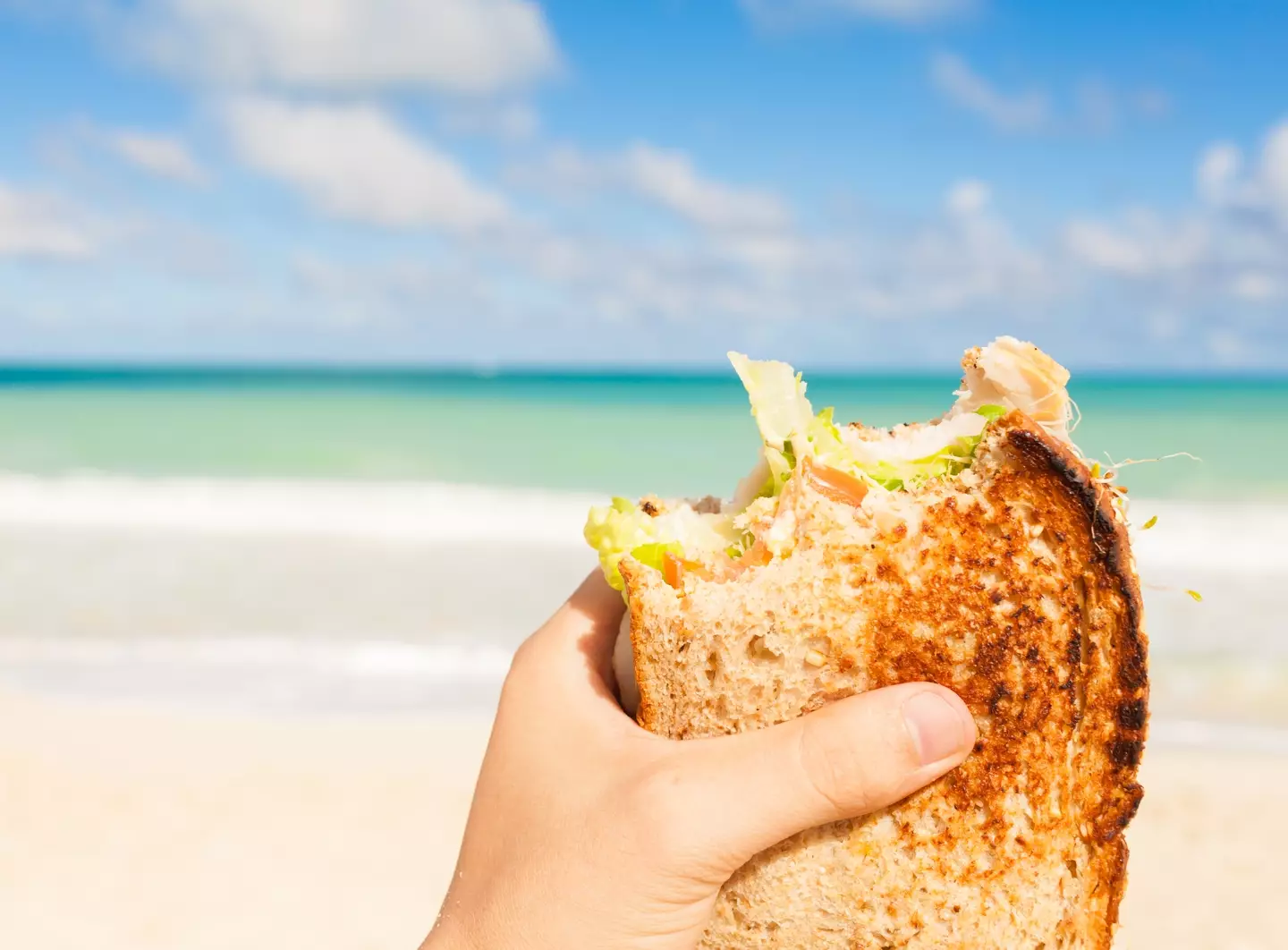
Growing up, we’d all been told to wait after eating before getting into the pool or going for a dip in the sea.
Our young minds often assumed it was a measure to avoid sinking, our full bellies at risk of weighing us down.
Of course, the more rational (our parents, sadly) were likely just concerned about the fact that it could lead to cramp, which would obviously end up being pretty dangerous while you’re swimming.
But one doctor has spoken out to say that the old wives’ tale isn’t all it seems.
Advert
Writing for the Montreal Gazette, Dr. Christopher Labos explains: “If you were ever told to wait 30 minutes after eating before swimming, that was well-meaning but misguided advice.”
The cardiologist and epidemiologist, who is based in Montreal, Quebec, acknowledges how the widespread ‘fear’ is that you will ‘get a cramp and drown’.

"While not entirely far-fetched, the biological reality is far more nuanced,” he says.
The cramp theory is based in the fact that eating a large meal will leave a ‘large bolus of food in your stomach’, which your body will have to digest.
In turn, your body will need to redirect extra blood flow to your stomach to help the digestion process.
This means less blood is on hand to be sent to your muscles as they are used to swim, and, after being ‘deprived of oxygen’, these will then cramp up.
"You won’t be able to swim, and you will risk drowning,” Labos says, admitting this is ‘probably true to a degree’, as a large meal will, indeed, make exercise ‘more difficult’.
“After all, most people don’t eat a steak dinner and then immediately go run a 5K,” he adds.
However, he believes there are a number of problems with this argument – first being ‘timing’.
“It takes more than 30 minutes for you to digest your food,” Labos continues.
“It takes a few seconds for food to pass from your mouth, down your oesophagus, into your stomach.
“But it spends roughly a couple of hours in your stomach before passing into your small intestine where the real digestion happens.
“After several hours, what’s left passes into your large intestine so most of the water in the food can be reabsorbed. Roughly one day after you ate it, the food is finally expelled.
“Waiting 30 or even 60 minutes is likely trivial when you consider that it takes you roughly 24 hours to pass a meal through your entire gastrointestinal system.”
Labos also says an ‘important distinction’ should be made between hardcore athletes and people ‘splashing around in the sea’ on holiday.

“The purported danger of eating and then swimming assumes that you are going to be swimming alone in deep water with no one to help you when you get such a debilitating muscle cramp that you would be unable to even float on your back,” he writes.
“This is not how most people enjoy the seaside. If you’re planning to lounge in waist-deep water at the beach while floating on a pool pillow, even if you did get a severe cramp you could simply stand up and walk back to your deck chair with ease.”
Instead, Labos warns that alcohol is much more dangerous as a risk of drowning than food, and is the ‘one thing’ to avoid if you ‘plan to swim or go boating in deep water’.
“Otherwise, enrol your kids in swimming lessons, use life-jackets on boats and put a fence around your backyard pool,” Labos said.
“There are many ways to prevent drowning. But waiting 30 minutes after a meal isn’t one of them.”